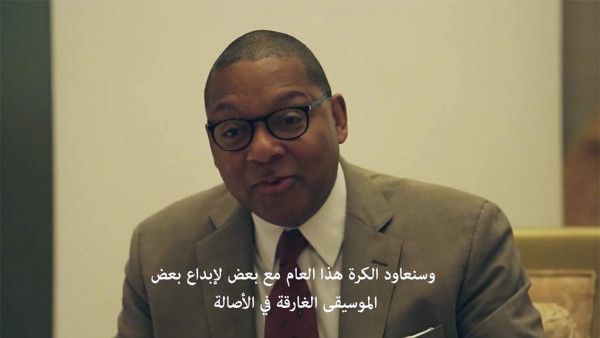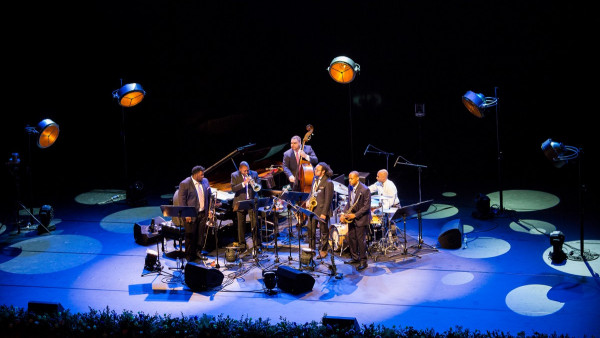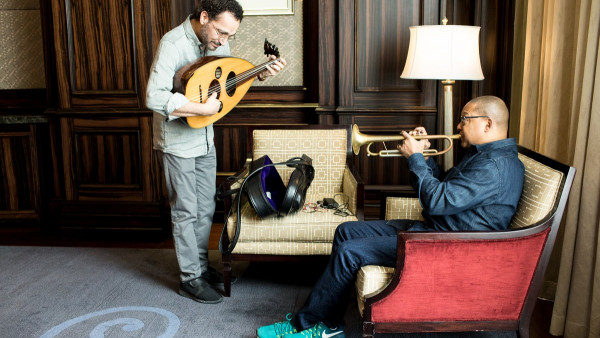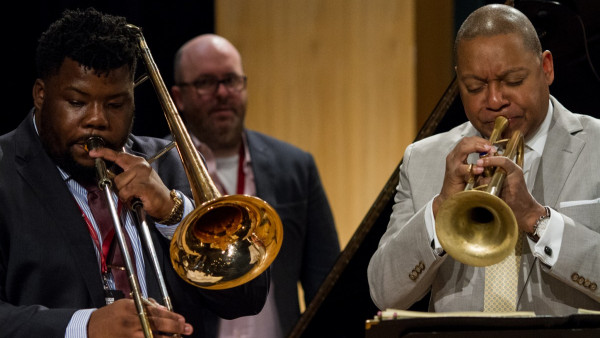Abu Dhabi Festival 2017: trumpeter Wynton Marsalis on preserving jazz as ‘America’s classical music
Spoiler alert: Wynton Marsalis suffers for his art, too. On the surface, the American trumpeter appears the very epitome of composure and professionalism – a superhuman mix of slick self-confidence and no-nonsense determination. A man who still irons his suits and copies his own sheet music by hand. A musician whose lightning virtuosity you expect to be credited to nothing but hard work.
Yet Marsalis – who performs at Emirates Palace tonight as part of Abu Dhabi Festival – bristles at the idea that the tortured artist myth, so beloved by jazz fans, might not apply to him.
“Everybody on Earth suffers. You could tell me some stories – man my mouth might be hanging off: ‘Shoot, you dealt with that?’,” he proclaims, in a booming baritone.
“That’s your personal life. We are all dealing … I dealt with problems I had, I’m dealing with.”
I point out as delicately as possible, combating the sound of wailing sirens down the line from New York City, that the whole purpose of our conversation is for me to try to figure out exactly what kind of person Marsalis is.
“Listen to my music. I have a lot of records – it is all in there,” he replies.
“I’ve got stuff – I just don’t whine and cry about stuff that happened. Now I’m 55, I’m not a boy, I’ve been out here a long time.”
On this, it is impossible to argue. Marsalis has a lot of records – dozens of them – spread over a 35-year career, during which he has enjoyed a higher public profile than any jazz musician of his generation.
There’s a Pulitzer – the first awarded to a jazz musician – nine Grammys and 29 honorary degrees.
He has also helmed Jazz at Lincoln Centre for 20 years – the New York performance complex, educational programme and its resident big band – which has done much to preserve and present the genre as “America’s classical music”.
Such a role carries enormous influence, but leaves the trumpeter wide open to criticism that he is mummifying the art form.
Marsalis is a notorious conservative who is generally of the opinion that the evolution of jazz should have been frozen sometime in the mid-1960s, before electronic instruments and rock backbeats began incestuously blaspheming its acoustic, swinging roots.
At times, such outspoken opinions have risked overshadowing the music. After signing with the major label CBS at 20, Marsalis enjoyed unprecedented marketing exposure for a jazz act of any age, and in interviews, the young firebrand was ever happy to pour scorn on his contemporaries and elders alike.
“It was philosophical,” says Marsalis of those early days. “Because I was demanding a certain level of integrity at a time of corruption – there’s nobody who will be more self-righteous than somebody who’s lying,” he adds, breaking into fits of laughter.
“Sometimes, they have to remind themselves that they’re lying.”
Marsalis’s musical conservatism may be legendary, but it is only after talking to him at length that its depth truly becomes clear. This purism is not a mindset or aesthetic preference, more of a quasi-religious belief. Time and again throughout our interview, the word “corruption” comes up in relation to music.
Are things, then, any less corrupt today?
“Man, you know what’s going on is corrupt – most people are trying to figure out how to be higher up the food chain instead of playing,” he replies.
“I realised as I got older that – propaganda – it is always an uphill struggle … it doesn’t matter what time you’re in, the times are the times.”
Most people would say it is a boom time for jazz right now. Artists such as Robert Glasper and Kamasi Washington have crossed over to hip-hop, revitalising the genre for a new generation. It may not be Marsalis’s taste, but surely if it leads kids back to the source – jazz à la Wynton – there’s no way that’s a bad thing.
“It is not a matter of bad – first of all, I taught Robert Glasper when he was in high school. I was at his wedding,” notes Marsalis.
“Whether I’m dismissive of people or not, for me the source is the source, you don’t need to go through something else to find it – to me that’s the value of education. I don’t need to look at a pornographic video to get to a movie.”
What also becomes clear after talking to Marsalis is not just the depth of his conservatism, but its source. He grew up in jazz’s birthplace New Orleans, the son of pianist Ellis Marsalis Jr.
Early gigs included touring with drummer Art Blakey and mentor Herbie Hancock – dream gigs for any young player today – which Marsalis describes not as goosebump-inducing early breaks, but as mere inevitability. “I was the only person I knew who wanted to play that music,” he says.
Marsalis is a believer in the freedom jazz represents, often drawing parallels between jazz and democracy – the idea of collective improvisation akin to equal self-determination.
So if jazz is corrupt, where does that leave democracy in the US today?
“It is in a good place,” he says. “People came out and voted – voting means you have to get your people out, you have to participate – and if you don’t, you don’t.”
Wynton Marsalis has an active twitter account and is sharing some of his rehearsal sessions for Abu Dhabi Festival.
by Rob Garratt
Source: TheNational




